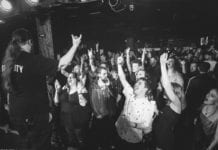
By Dave Hunter
PROPOSALS to raise music tariffs for events in bars and nightclubs have been dubbed “a disgrace” by operators, who claim the higher fees could lead to closures.
PPL, the organisation responsible for licensing recorded music for playing in public spaces, is currently consulting on plans to change its Specially Featured Entertainment (SFE) tariff.
PPL’s public performance licensing is now administered by PPL PRS Ltd, a joint venture between PPL and PRS for Music. However, PPL and PRS will continue to set their tariffs separately, which is why PPL is undertaking this consultation.
The SFE tariff applies to any event where recorded music is played at a nightclub, pub, bar, restaurant, café or hotel as “featured entertainment”, played by a DJ, and where there is dancing at the venue (or provision for dancing).
The organisation claims that the current tariff, which has been in place for around 30 years, is in need of reform and “undervalues the rights of PPL’s performer and record company members in the recorded music they create”.
The fee itself is calculated by charging a certain amount per head, per hour, depending on how many people will be hearing the music, and so varies from venue to venue.
On average, the fee is around 3.8 pence per head, per hour.
The organisation proposes revising this to up to 22 pence per head, per hour.
A spokeswoman for PPL said: “In this consultation, PPL is sharing the results of economic evidence, which strongly indicates that the current tariff is under-valued, and is sharing some thoughts on how the tariff might be re-structured to be fairer across all sizes of SFE events and simpler to apply for licensees.
“PPL’s position is that the current fees, which have been in place (subject to annual inflationary increases) for over 30 years, are too low to be an appropriate reflection of the value of the SFE licence.”
Donald MacLeod, owner of Glasgow nightclubs The Garage and the Cathouse, branded the proposals “appalling”.
“The actual collection costs must be going down, given all the technology and the advances that have been made,” said MacLeod.
“Yet they still want more and more. It’s a disgrace.”
MacLeod argued that the tariffs should be reduced in order to encourage more operators to make music a feature in their venues – and increase the number of businesses paying the fees.
Paul Smith of Castle Leisure Group, which owns Stirling nightclub Fubar and Harlem in Dunfermline, among others, said the firm is cutting back on music in its venues because the cost is “hard to justify”.
“We are removing music as featured entertainment in a lot of venues,” said Smith.
“If the tariff was cut we would keep it in other venues and use it more.”
He said the new, proposed tariff “over-values the value of music in venues and it’s yet another attempt to bleed dry hard-pressed premises who are facing extortionate increases from business rates, from insurance, from all kinds of costs and simply can’t afford it”.
“It will lead to more closures,” he said.























